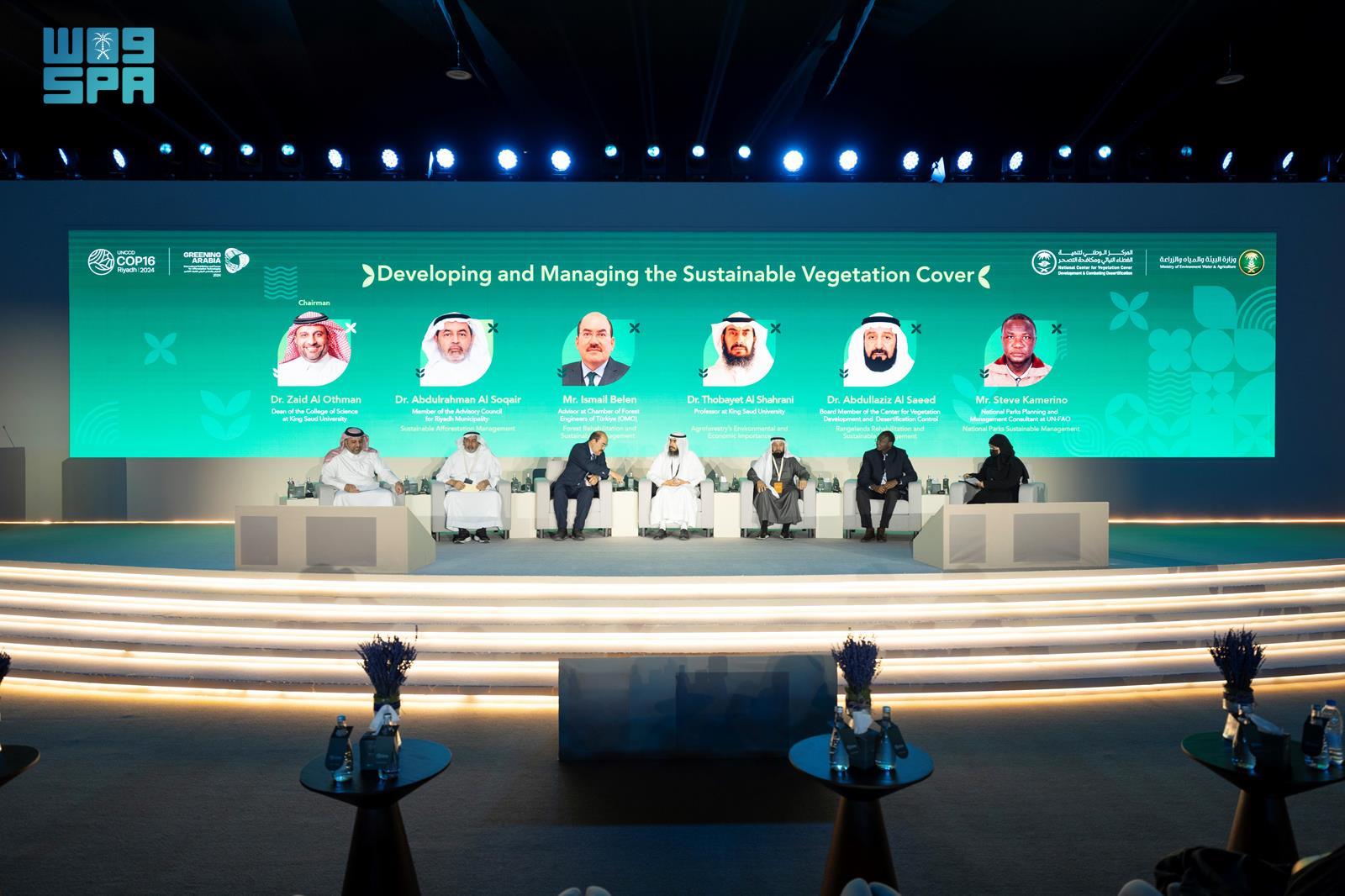Experts Outline the Vegetation Development Roadmap on Third Day of International Afforestation Forum

Riyadh, December 09, 2024, SPA -- Five-panel discussions were held yesterday as part of the closing day of the International Forum for Afforestation Technologies, held here alongside the sixteenth session of the Conference of the Parties (COP16) of the United Nations Convention to Combat Desertification (UNCCD).
The discussions, in which local and international experts took part, covered topics related to vegetation development, sustainable management, combating desertification, and urban afforestation.
One session focused on "Developing and managing sustainable vegetation cover", with speakers highlighting the importance of major afforestation initiatives, including the Saudi Green Initiative and Green Riyadh, which seek to plant billions of trees, thus enriching biodiversity and contributing to an improved quality of life.
Experts stressed that sustainable afforestation not only serves as an environmental solution but also offers economic opportunities through the utilization of by-products like timber and beekeeping. They underscored the need for diligent management of such projects to ensure environmental, social, and economic sustainability, highlighting the critical role of the private sector in supporting and advancing environmental initiatives.
Another session, titled "Vegetation monitoring and governance", explored the role of modern technologies, such as satellites and drones, in gathering precise data for better monitoring of the environment, and in facilitating informed decision making.
Discussions highlighted the significance of environmental legislation in Saudi Arabia, which is crucial to promoting green investments. They also touched on the challenges posed by climate change and the rising incidence of forest fires, stressing the need for advanced technologies to be able to respond swiftly to emergencies.
In the session "Urban afforestation and biodiversity", experts stressed that strategically planting trees and vegetation in urban areas plays a crucial role in mitigating the impact of climate change and enhances the overall quality of life. They talked about the importance of selecting native plants that are well-adapted to the local climate and soil conditions, noting that plant diversity can effectively reduce carbon emissions and promote healthier environments.
Speakers also highlighted the benefits of green spaces in cities on mental health and well-being, and advocated for expanding urban afforestation projects.
In the session "Green belts, roads, and railways afforestation", participants explored the role of afforestation in mitigating sand encroachment and improving the quality of air. They underscored the importance of establishing green belts as a sustainable strategy to combat sand movement, as well as the advantages of expanded green spaces, which help reduce climate risks.
Discussions in the closing panel, during which Chairman of the forum's Scientific Committee Dr. Ahmed Alfarhan highlighted the success of COP16 and the accompanying exhibition, revolved around Saudi Arabia's commitment to expanding international cooperation in the pursuit of environmental sustainability.
-- SPA





